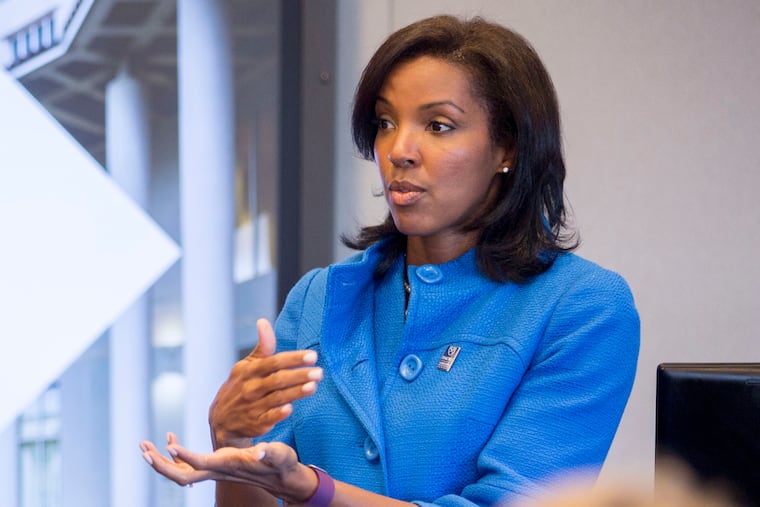For $214,800, you can get a Wharton executive MBA from the comfort of your couch (mostly)
The first of its kind among top business schools, Wharton's new program starts in May and is 75% virtual.

Executives who want a business degree now have a new option at the Wharton School which this month launched a “global” executive program offering 75% virtual and 25% in-person classes.
This is the first time the acclaimed business school has offered an executive MBA program that is mostly online class instruction. The program will start in May 2023 and cost $214,800, the same price as Wharton’s in-person MBA degree.
MBA education expert Eliot Ingram said Wharton’s new hybrid program could be a “game changer. They want to be a dominant player in this space.”
“Wharton has a strong, well-established global brand as a leader in business education, meaning there already is a strong global demand among MBA applicants for a Wharton business education,” said Ingram, a 1999 Wharton MBA alum and cofounder and CEO of ClearAdmit, a Philadelphia-based digital media firm covering the MBA admissions space.
First hybrid program at a top MBA school
Online MBA programs abound, but Wharton is the first of the top-ranked U.S. MBA programs to launch a hybrid version of the degree. In addition to Wharton, top ranked MBAs include Columbia Business School, the University of Chicago Booth School of Business, Harvard Business School, New York University’s Stern School, and the Kellogg School of Management at Northwestern University.
Wharton’s new “global” format is aimed at professionals around the world who have 10 years of full-time work experience and five years of management experience. The global MBA features 75% live, virtual courses every other week, and 25% in-person residential weeks on campus. Cohort members will come together in-person five weeks or more during the 22-month program.
“By coupling best-in-class virtual instruction with meaningful residential learning opportunities, we can extend the reach of a Wharton MBA education to even more leaders,” Erika James, dean of the Wharton School, said in a statement.
Wharton’s existing, in-person MBA Program for Executives enrolls about 230 people each year who are taught by the same faculty as Wharton’s full-time MBA program; they earn the same degree as full-time in-person MBA students. The school has campuses in Philadelphia and San Francisco.
During the pandemic, Wharton and other top business schools adapted, using technology to deliver classes remotely. That, and demand from potential applicants, inspired Wharton’s leadership to consider a virtual program.
“We started to see that there was this latent demand that when people thought the program might be online for significant amount of time, that it was actually something they would consider doing,” Brian Bushee, senior vice dean of teaching and learning, told PoetsandQuants.com, a site that follows the graduate business education market.
Online education is more profitable
And there’s big money to be made in online MBAs.
“Online delivery of education is more scalable and profitable than in-person instruction, so this could be a profitable way for Wharton to grow its business education degree programs,” Ingram said.
The average price for executive MBAs is $196,940, up 2.4% from the 2021-2022 admission season, according to data from Clear Admit.
This new global executive MBA could lead Wharton to earn revenues of $15 million every year of the new global MBA, Ingram estimated.
“It’s realistic that [revenue figure] could grow over time,” Ingram said. But executive MBA revenues are volatile, depending on the economy, because executives’ companies often foot the bill.
Wharton expects 60 to 70 online students in the first year, Wharton spokesperson Peter Winicov said, and “if this works well, adding a second cohort.”